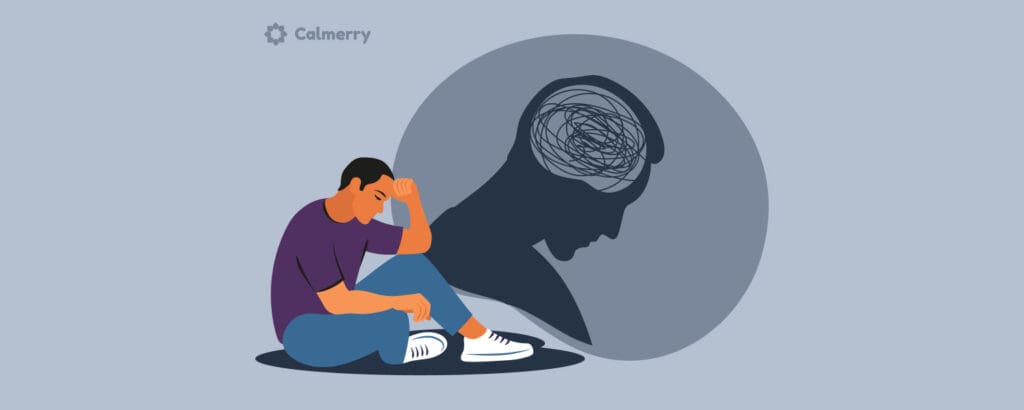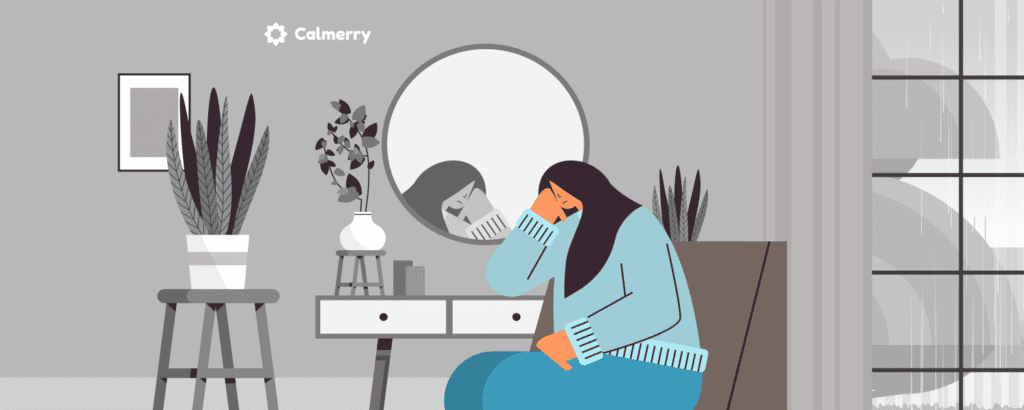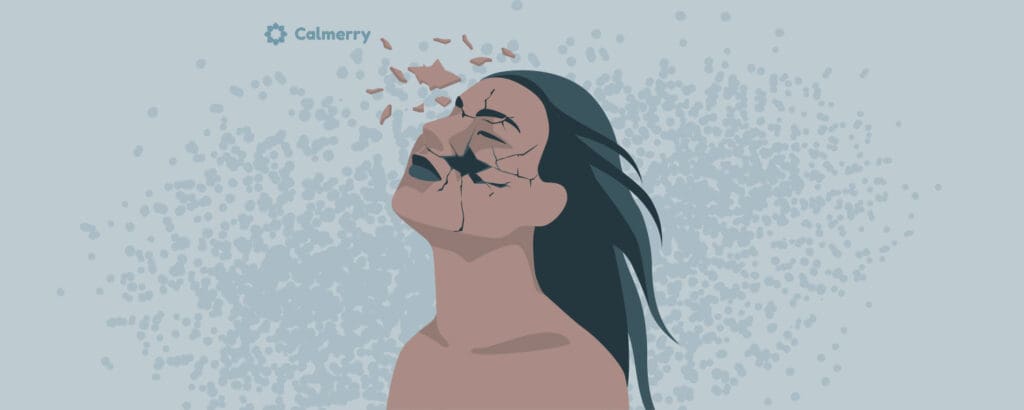What is Melancholic Depression? How to Spot It and Cope With It

In this article
Melancholic depression is a type of depression that is sometimes known as melancholia. Depression of this type results in a complete loss of pleasure in almost everything.
In the fifth edition of the DSM-5, melancholic depression is defined as a form of major depressive disorder (MDD), which means its symptoms can be more severe than other types of depression. In some cases, this can also make it harder to treat.
One of the myths about depression says that it’s “all in your head”. However, by understanding more about what melancholic depression is, it is possible to develop tools to help you manage the symptoms.
Signs and symptoms of melancholic depression
Melancholic depression symptoms are often described as more severe than other types of depression. A study found that patients were likely to have more depressive episodes than those with non-melancholic depression, but thankfully, each episode was likely to last for a shorter time.
Signs and symptoms may include:
- Episodes of severe sadness
- A sense of joy and happiness seems to have disappeared
- Feeling anxious
- Feeling empty or not having an emotional response to events in your life
- Having no enjoyment or interest in things you used to like, such as hobbies or seeing friends (a feeling known as anhedonia)
- Difficulty sleeping, waking up early, insomnia or fatigue
- Poor appetite or weight loss
- Difficulty concentrating or making decisions
- Feeling guilty
- Feelings of hopelessness or worthlessness
- Thoughts of self-harm or suicide
- Pain or aching in your body
- You may feel worse in the morning, with a gradual improvement through the day
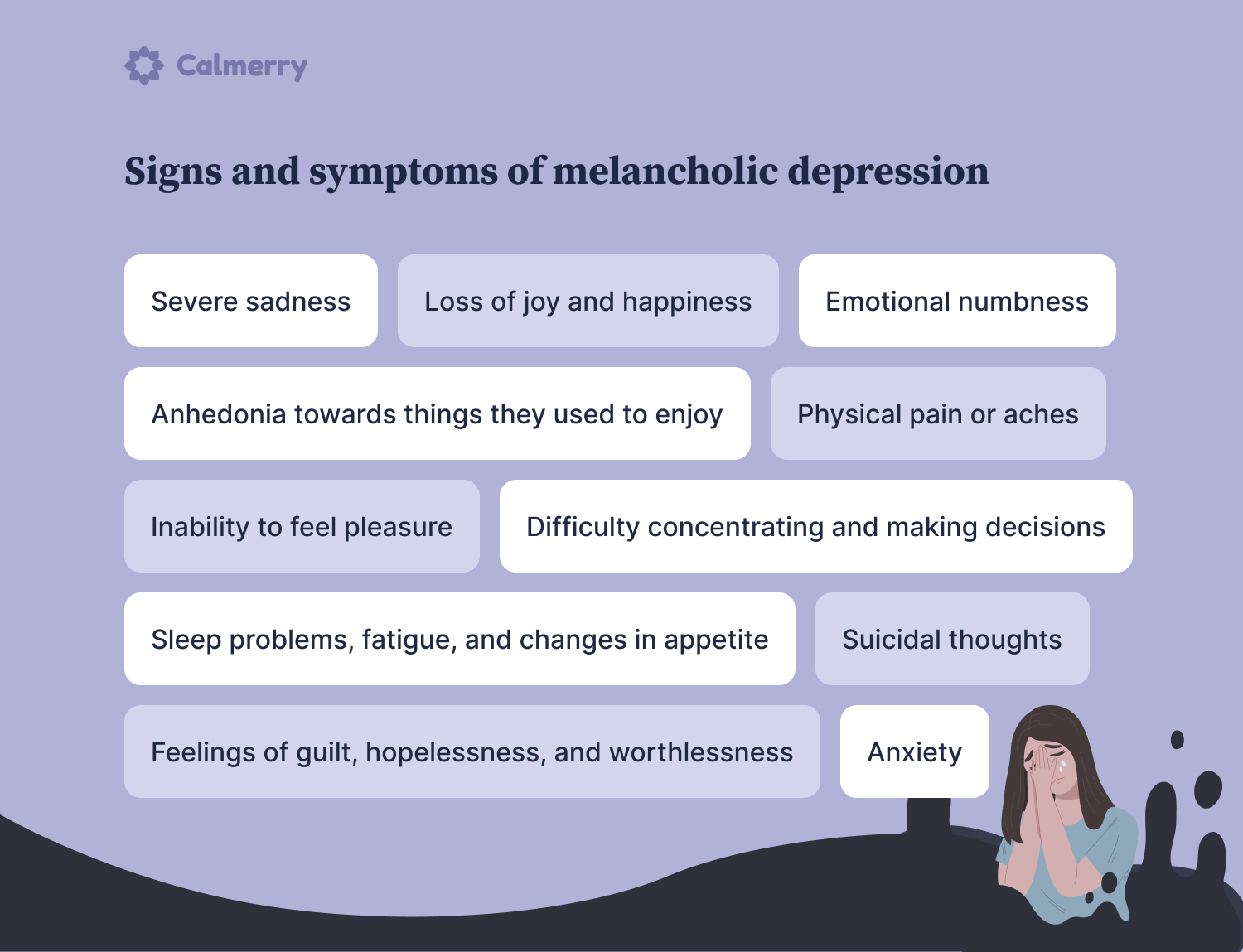
Melancholic features include physical and emotional symptoms, which may appear to change your behavior. Physical symptoms include:
- Changes to your speech, such as slow speech, pausing a lot, or a change in volume
- No longer making eye contact
- A slouched posture
- Touching your body or face frequently
- Moving more slowly than usual
How common is melancholic depression?
There have been various studies looking at how common melancholic depression is. Still, the results have often differed depending on the diagnostic criteria used and when the study was carried out.
When looking at people with all types of depression, 7% to 44% could have melancholic depression.
A study in 2022 looked at data spanning 50 years to explore the age that melancholia was likely to occur and whether men or women were more likely to be affected. The researchers found that melancholic depression was more likely to occur between the ages of 40 and 49, and women were more likely to be affected than men.
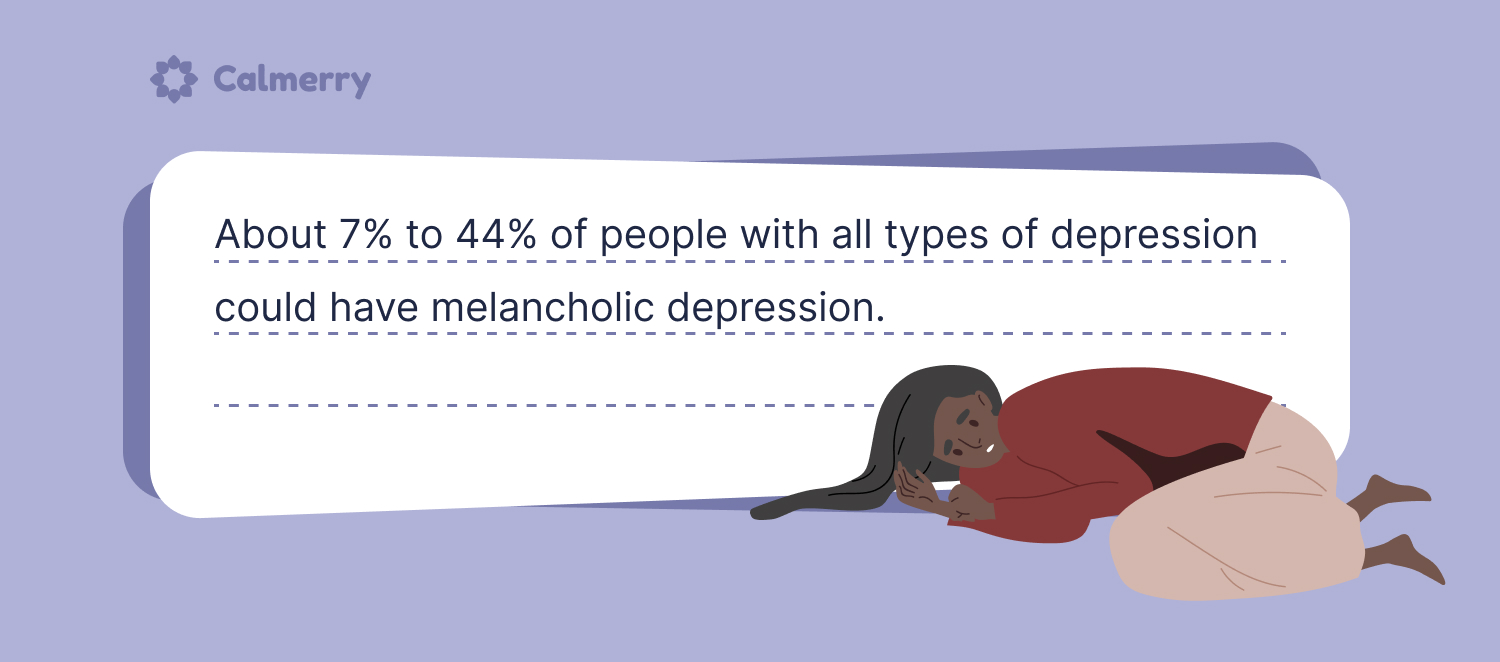
Possible causes of melancholic depression
The “melancholic personality” has been described for centuries. Far from being used just to describe a gloomy disposition, those who are melancholic can also be seen as having quiet or analytical personality traits.
However, there is some evidence that melancholic depression can run in families, and they might be more likely to experience it if they previously had postpartum depression.
Like other forms of depression, melancholia is linked to changes in the brain’s neural pathways and an imbalance in neurotransmitters and stress hormones.
How is melancholic depression diagnosed?
There is no physical test that can confirm if you have melancholic depression. However, by talking to you, your doctor can work out if you might be struggling with this more severe form of depression.
There are several questions your doctor may ask you:
- What does a typical day look like for you
- Whether you find it hard to get out of bed each morning
- If mornings feel harder than evenings
- How has your sleep been lately
- What your energy levels are like
- If you are still able to go to work
- How are you managing any childcare
- If you can still feel joy in hobbies or seeing friends or family
- Whether you can still concentrate
- What helps your mood (if anything)
- If you have had thoughts of suicide or hurting yourself
- If anyone else has noticed a difference in your behavior, such as slow movements or speech changes
In some cases, a doctor may refer to a health specialist – psychiatrist or neurologist – to rule out alternative diagnoses, including bipolar disorder, Parkinson’s disease, MS, or a form of dementia. This is not something to worry about, as a thorough assessment will help ensure you receive the correct treatment.
You can take this professional depression screening test if you experience symptoms of depression.
However, only a licensed therapist can come up with an accurate diagnosis. So, the best solution is to discuss the test results with a therapist who can help you address your feelings and develop a comprehensive treatment plan.
How to overcome melancholic depression
Learning that this form of major depressive disorder can be worse than other types of depression can be extremely worrying. However, treatment is available that can help you cope.
Melancholia treatment with medicine
Various pharmaceutical treatments can help you manage melancholia. Treatment with antidepressants can be particularly helpful, and there are a variety of types of antidepressants available.
These medications help to increase the level of “happy” hormones in the brain, helping to lift your mood. Although they may not be a complete cure, they can give you a helping hand towards feeling better, making it easier to take other steps towards improved mental health.
A cognitive behavioral therapy for melancholic depression
Cognitive behavioral therapy (CBT) teaches you to change your thoughts and behavior. When things feel overwhelming, CBT can help you break the problem down into smaller, more manageable parts so that you can start to deal with the larger issue.
Thinking about your problems this way can help you get out of negative thought patterns and start to feel more in control of your life.
Once you start practicing CBT, you can improve your daily feelings when faced with common problems.
Online therapy
Speaking to a therapist online can be an excellent way to access support without worrying about attending an in-person appointment. You may feel several emotions, including anger, fear, lethargy, or apathy, so speaking to someone online can feel more manageable.
Attending an online therapy session is beneficial because it also demands less time from your schedule and may be helpful if you have a social or generalized anxiety disorder.
Other treatment options
Electroconvulsive therapy (ECT) can be used in cases where medical and talking therapies are ineffective. ECT involves delivering electrical impulses to the brain, but it will only be considered when all other treatment options have been tried.
Suicide prevention in melancholia
In all types of major depression, the risk of suicide may be higher. If you have thoughts of suicide or self-harm, you must call the emergency services or go to the emergency room to treat your mental health.
If you think someone else is at risk of suicide or self-harm:
- Call for help or take them to the ER
- Stay with them until they receive medical assistance
- Take away anything that they could use to harm themselves
- Try to listen to their thoughts and feelings without judging
If you or someone you know is considering suicide, contact the National Suicide Prevention Lifeline at 1-800-273-TALK (8255) (En Español: 1-888-628-9454; Deaf and Hard of Hearing: 1-800-799-4889) or the Crisis Text Line by texting HOME to 741741. If it’s a life-threatening emergency, dial 911 or your local emergency number. All emergency resources you can find here.
As with other forms of major depression, the risk of suicide and suicidal ideas can be higher, so it is important to seek help from the emergency services immediately if you, or someone else, expresses suicidal thoughts.
Final thoughts
Melancholic depression is a severe form of depression that can cause various mental health symptoms. Unlike non-melancholic depression, it can also cause physical symptoms such as slowed movement and change in speech.
Various treatments are available to support those with melancholic depression, and it is important to seek psychological support, such as talking therapy.
Try online depression therapy at Calmerry, and we’ll match you with a professional within 1 hour. A licensed therapist can provide support and offer evidence-based treatments like cognitive behavioral therapy. All therapy sessions are conducted in a completely safe and confidential setting.
online therapy
live video session


